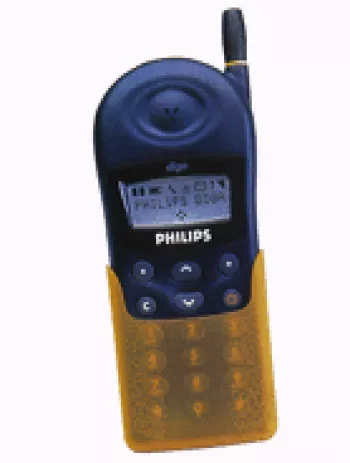
Overview of Philips 193
The Philips 193 is a feature phone developed by Philips, released in October 2008. Known for its durability and simplicity, this device catered to users who needed basic communication tools without the complexities of modern smartphones. It provided essential functionality with a long-lasting battery, making it an ideal choice for users who preferred reliability over high-tech features.
Network and Connectivity
The Philips 193 operates on GSM technology, specifically supporting 900 and 1800 MHz frequency bands. This ensures wide-ranging network coverage in most parts of the world, particularly where GSM is the standard. Despite its reliable 2G connectivity with GPRS class 10, the device does not support EDGE or any form of advanced mobile data technology, limiting it to basic voice calls and SMS messaging. There is no support for Bluetooth, WLAN, or USB connectivity, which is expected for a feature phone of its time.
Design and Build Quality
Featuring dimensions of 104.5 x 45.5 x 12.8 mm and weighing just 53 grams, the Philips 193 is compact and lightweight, making it easy to carry around. The design includes a candy bar form factor typical of feature phones. The casing is constructed of durable materials, reflecting Philips’ commitment to building resilient devices. It uses a Mini-SIM card form factor and comes in a classic black color.
Display
The phone sports a 1.47-inch CSTN display with a resolution of 128 x 128 pixels, offering a pixel density of approximately 123 pixels per inch. The display supports 65K colors, providing basic visual clarity for text and simple graphics. Given its small size, the screen-to-body ratio is about 14.7%, sufficient for its intended use of calls and text messaging.
Storage and Memory
The Philips 193 does not support external memory cards, which is typical for feature phones of this period. It comes equipped with built-in memory sufficient for basic functions, allowing users to maintain a phonebook and a call records log of 30 received, dialed, and missed calls. This limited storage underscores the phone’s focus on essential functions.
Sound
Equipped with a basic loudspeaker, the Philips 193 is suitable for voice calls and listening to FM radio. However, it lacks a 3.5mm audio jack, meaning users cannot use standard headphones for private listening without external adapters.
Communication Features
While the phone lacks advanced communication tools like Bluetooth or internet browsing capabilities, it includes a built-in FM radio, providing entertainment and access to news or music on the go. The absence of features such as Java support and games highlights its nature as a utility device rather than an entertainment gadget.
Battery Life
One of the strengths of the Philips 193 is its battery efficiency. It is powered by a removable Li-Ion 650 mAh battery, capable of lasting up to 240 hours on standby and providing up to 3 hours of talk time. This impressive longevity makes it highly reliable for users who need a phone that can last for days without recharging.
Conclusion
Overall, the Philips 193 is a quintessential feature phone aimed at delivering basic functionalities with excellent battery life and resilience. While it lacks the advanced features found in modern smartphones, its simplicity and efficiency make it a suitable choice for users requiring a phone primarily for voice calls and SMS. Its affordability, ease of use, and reliability make it a device that served its demographic well during its market life.
Key Features of Philips 193
- Lightweight design, weighing only 53 g (1.87 oz)
- Compact dimensions at 104.5 x 45.5 x 12.8 mm
- GSM technology for basic connectivity
- FM radio for entertainment
- Removable Li-Ion 650 mAh battery with up to 240 hours standby time
- Affordably priced at about 50 EUR
- Loudspeaker support for hands-free calls
Philips 193 Device Disadvantages
- Limited Network Technology, only GSM 2G bands supported.
- No EDGE support for faster data transfer.
- Discontinued, making support and repairs challenging.
- Display with low resolution and small size (1.47 inches, 128 x 128 pixels).
- No memory card slot available for expandable storage.
- Absence of a camera feature.
- No 3.5mm headphone jack for standard audio connections.
- Lack of modern connectivity features - no WLAN or Bluetooth.
- No USB port available.
- Limited functionality with no browser or games supported.
- Small battery capacity (650 mAh) leading to limited usage time.

View Also
More Phones
All Rights Reserved +14266 Phones © Mobilawy 2025

























